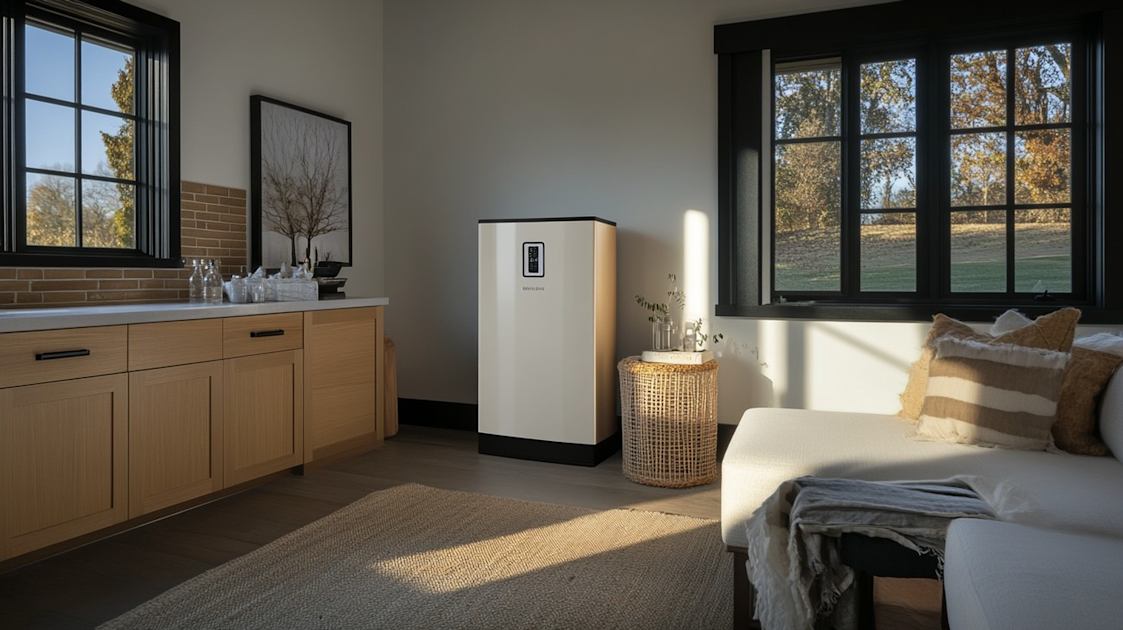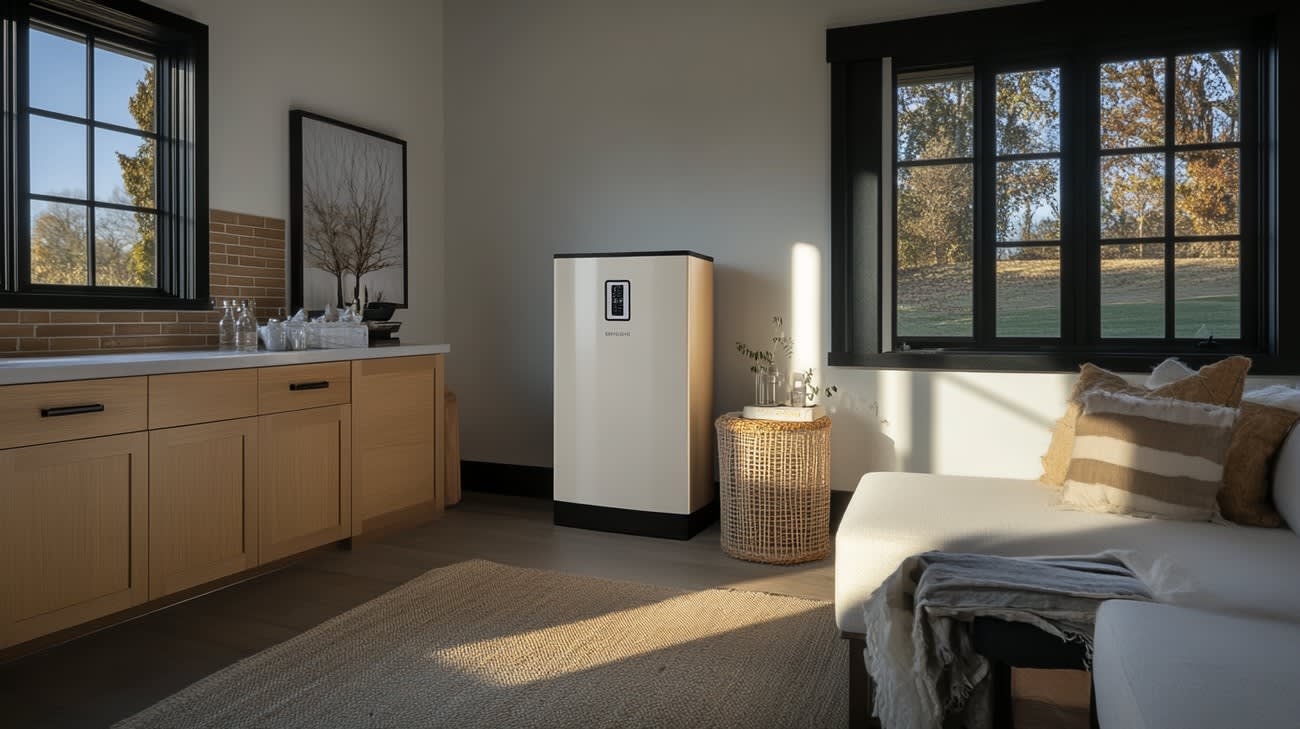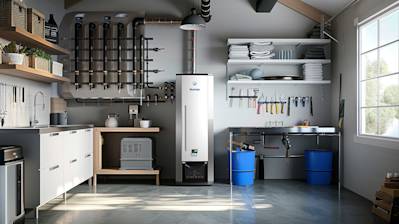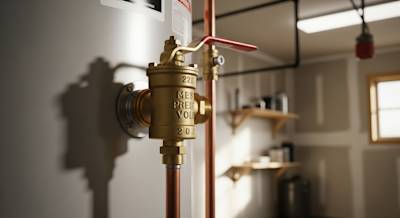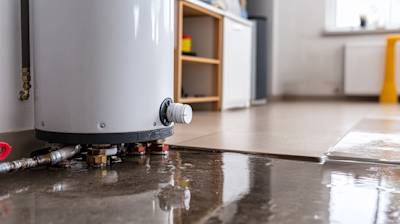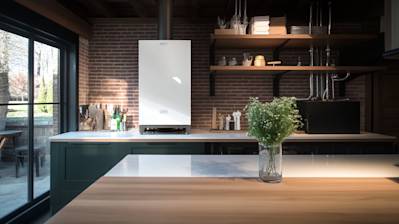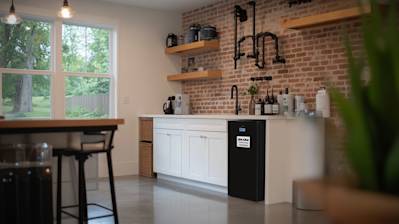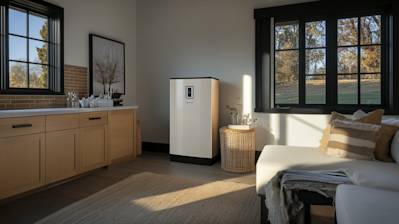A crucial aspect of home systems we often buy but don't give a second thought to is the water heater. Among the relatively newer and efficient choices out there is the heat pump water heater. As more people grow environmentally conscious, they look for ways to save energy. Let’s delve more into this exciting technology that presents a combined solution for heating your water and reducing energy usage.
The Definition of Heat Pump Water Heater
Before we proceed, let's first define what a heat pump water heater is. In the simplest terms, it is a water heater that absorbs heat from the environment and uses it to heat water in your home. Unlike conventional water heaters that directly generate heat, heat pump water heaters move heat from one place to another, making them incredibly energy efficient.
How Does a Heat Pump Water Heater Work?
Here is a bit of attractive science to those seeking a more efficient way to heat their water. Heat pump water heaters operate based on a physics principle known as the Carnot cycle.
- They absorb heat from the surrounding air.
- The absorbed heat goes into a refrigerant inside the heat pump.
- The refrigerant gets compressed, which amplifies the temperature.
- The heated refrigerant runs across the water tank, transferring heat to the water.
The Energy Efficiency of Heat Pump Water Heaters
One of the most significant advantages of heat pump water heaters is their energy efficiency. Conventional water heaters use significant amounts of electricity to heat water, but heat pump water heaters can generate the same amount of hot water with up to 63% less energy.
This energy efficiency results in reduced greenhouse gas emissions, significantly limiting your carbon footprint. Moreover, you can also save considerable money on energy bills over time.
Heat Pump Water Heater Types
There are primarily two types of heat pump water heaters:
Standalone (All-in-one) Heat Pump Water Heaters: The heat pump and the water storage tank are combined in a standalone unit. They are easier to install and usually suitable for environments with moderate to high temperatures all year round.Split Type Heat Pump Water Heaters: The heat pump is separate from the water storage tank, offering the flexibility to place the tank indoors and the heat pump outdoors. Ideal for colder climates where indoor heating can provide the warm air needed to extract heat.
Sizing Your Heat Pump Water Heater
Choosing the correct size for your heat pump water heater requires considering two significant factors:
First Hour Rating (FHR): It determines the amount of hot water your heater can deliver in its first hour of operation.Household Size: This factor directly impacts the amount of hot water consumption in your home.
For example, a two-person household needs a heater with an FHR of 45-55 gallons. Conversely, a family of six would need a heater with at least 75 gallons of FHR.
Cost and Lifespan of Heat Pump Water Heaters
Heat pump water heaters may seem expensive at first, with prices ranging from $800 to $2,500. However, the considerable energy savings will offset the upfront cost over the water heaters' life, typically 10-15 years.
Heat Pump Water Heater and the Environment
Heat pump water heaters add value beyond comfort and cost savings. They are a sustainable water heating solution. Due to reduced energy usage, they contribute less to greenhouse gas emissions. They align perfectly with the agenda of reducing environmental harm and preserving our planet's resources.
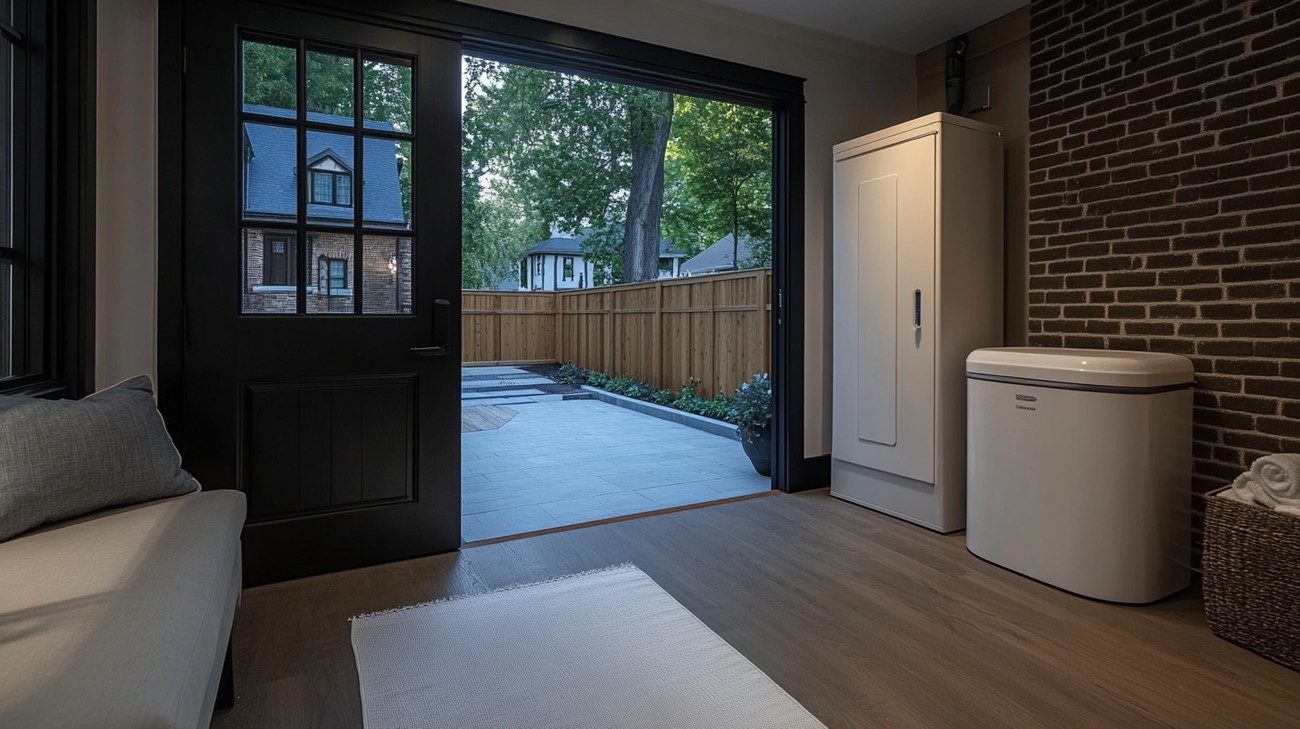
Frequently Asked Questions about Heat Pump Water Heater
What Makes a Heat Pump Water Heater Energy Efficient?
Heat pump water heaters can use up to 63% less energy than traditional types of water heaters. By leveraging the heat in the environment, they reduce the amount of electricity used for heating water. As such, even though the heat pump system requires electricity to operate, it uses significantly less energy than a traditional electric water heater.
How Long Do Heat Pump Water Heaters Last?
The lifespan of heat pump water heaters usually ranges between 10 to 15 years, depending on several factors like quality of the unit, maintenance, and how often it is used. However, with proper maintenance and care, some heat pump water heaters have been known to last up to 20 years.
What is the Ideal Environment for a Heat Pump Water Heater?
Heat pump water heaters require a specific environment to operate efficiently. They work best in places where the temperature remains within the range of 40-90°F year-around. Also, because they expel cool air as part of their operation, they are suited for places that could benefit from some cooling and dehumidification.
Is a Heat Pump Water Heater Noisy?
Heat pump water heaters do create some noise as they operate, which is often likened to the sound a dehumidifier makes. For this reason, they are best installed in areas where the noise will not be a disturbance. It's worth noting, however, that as technology has progressed, newer models have become significantly quieter.
Can I Install a Heat Pump Water Heater Myself?
While it's technically possible to install a heat pump water heater yourself, it's generally recommended to have a professional do it. The installation involves handling refrigerant, electrical wiring, and some plumbing—things best left to professional installers. This way, you can also ensure that the unit operates efficiently and that its warranty remains intact.
How Often Does a Heat Pump Water Heater Need Maintenance?
For optimal performance and longevity of your heat pump water heater, aim for an annual maintenance check-up by a professional. However, there are also simple tasks you can do regularly like maintaining the air filters, which is typically suggested to do every three months.
Is it Possible to Use a Heat Pump Water Heater in Cold Climates?
For optimal efficiency, heat pump water heaters should be installed in areas where the temperature remains within the 40-90°F range. However, most models come with a backup heating element that kicks in when the surrounding air gets too cold. So, while they can function in colder climates, their efficiency would be slightly compromised.
Does a Heat Pump Water Heater Cool the Surrounding Area?
Yes, heat pump water heaters do cool the surrounding area as they operate. They draw in heat from their surroundings to heat the water and, in the process, expel cooler, dehumidified air. So, if placed in a basement or garage, a heat pump water heater can help moderate temperatures in the space during hot weather.
Will I need to Retrofit my Home to Install a Heat Pump Water Heater?
Heat pump water heaters require certain conditions to operate optimally. For instance, they need sufficient space for airflow, around 1,000 cubic feet. Also, if installing indoors, the area should be able to handle condensate disposal. So, while retrofitting might not be necessary, some specific requirements must be met for optimal functioning of these water heaters.

Pros of a Heat Pump Water Heater
High-Efficiency Performance
Heat pump water heaters are highly efficient as they use a heat pump to heat the water instead of relying on conventional methods such as gas or electric resistance. They operate by transferring heat from a source such as the air or ground into the water, which requires much less energy compared to traditional water heaters. Consequently, these units can help homeowners achieve a significant reduction in energy consumption, leading to lower utility costs.
Environmentally-Friendly
These water heaters use renewable heat sources to warm up the water, minimizing their carbon footprint and making them an eco-friendly choice. By requiring less electricity to function, these devices help decrease the demand for power from fossil-fueled power plants, contributing to a reduction in greenhouse gas emissions. If integrated with a renewable energy source, like solar panels or wind energy, the environmental benefits can further enhance.
Long Lifespan
Heat pump water heaters generally have a long lifespan, usually lasting around 10 to 15 years, sometimes even more with proper maintenance. This longevity, combined with their high-efficiency performance, means that homeowners can recoup the higher upfront costs within a few years and then continue to save money throughout the device’s lifespan.
Multiple Operation Modes
Many heat pump water heaters come with different operating modes. These can include high efficiency, hybrid, electric, and vacation modes. This customizable feature allows homeowners to adjust the water heating operations based on their specific needs, which can further optimize efficiency and savings.
Cons of a Heat Pump Water Heater
High Initial Costs
While heat pump water heaters can be more cost-effective in the long run due to their high-efficiency performance, their initial upfront costs can be quite steep. Purchase prices for these heaters can be up to two to three times more expensive than traditional gas or electric water heaters. Additionally, the installation also tends to be costlier due to the requirement of additional components like condensate drain lines and air filters.
Complex Installation
Installation of heat pump water heaters can be quite complex and often requires the expertise of a professional installer. This installation involves several steps and key considerations, from determining the best location (one where it won't freeze and there's ample room for airflow) to properly setting up the condensation drain. This does not only increase the installation cost but also the duration required for the installation.
Limited Performance in Cold Weather
A significant downside to heat pump water heaters is their limited performance in cold weather. Since these devices rely on heat in the surrounding air, they become less efficient as the temperature drops. While some models are equipped with a backup resistance heating element to aid in such conditions, this negates the energy-saving benefits.
Requires Regular Maintenance
Heat pump water heaters necessitate regular maintenance to keep them functioning at optimal levels. This may involve cleaning air filters and the heat pump's outdoor unit, as well as regular inspections by a professional for potential refrigerant leaks. Although these tasks ensure the longevity and efficiency of the heater, they do add to the overall costs and may be time-consuming.
Need for Adequate Space
Heat pump water heaters typically require more space than traditional water heaters due to their design and the need for proper airflow around the unit. This can make installation tricky in small homes or apartments where space is a premium. The unit also needs to be placed in a climate-controlled area since it relies on heat from the surrounding air, which may not be practical in all homes.

Myths and Misconceptions About Heat Pump Water Heaters
In this section, we'll tackle several myths and misconceptions concerning heat pump water heaters. It is crucial to separate fact from fiction when considering such an important appliance in your household or business.
Myth 1: Heat Pump Water Heaters Do Not Work in Cold Climates
The myth that heat pump water heaters are not effective in cold climates is common but untrue. Heat pumps can operate in virtually any climate, as they don't produce heat but merely transfer it from one place to another.
While it's true that efficiency can decrease somewhat at very low temperatures, modern units have electric resistance elements that kick in when needed. These elements ensure the water heater continues to perform, even in freezing conditions.
Myth 2: Heat Pump Water Heaters Require a Lot of Maintenance
This myth suggests heat pump water heaters require more upkeep compared to traditional water heaters. In reality, both types call for periodic maintenance to ensure optimum performance.
Although heat pump water heaters involve somewhat more complex technology with additional components like evaporators and compressors, it doesn't necessarily lead to an increased maintenance burden. In fact, some modern units have self-cleaning features that can minimize maintenance requirements.
Myth 3: Heat Pump Water Heaters Are Noisy
The conception that heat pump water heaters are noisy is another common misconception. While early models of heat pump water heaters may have produced a fair amount of noise, improvements in technology and design have greatly reduced sound levels.
Most contemporary models function at noise levels similar to a quiet refrigerator. Placement of the heater and proper insulation can further mitigate any noise.
Myth 4: Heat Pump Water Heaters Are Not Energy-Efficient
Out of all misconceptions, the myth that heat pump water heaters aren't energy-efficient is perhaps the most mistaken. Heat pump water heaters can be two to three times more energy-efficient than conventional electric resistance water heaters.
They work on the principle of moving heat, not creating it, which conserves energy. While the initial outlay for a heat pump water heater might be higher than traditional models, the savings in energy bills can offset the cost difference.
####Misconception 4a: All Heat Pump Water Heaters Have the Same Efficiency
Not all heat pump water heaters are created equal. Various factors such as the model, size, and climate can impact the efficiency of the heat pump water heater. Therefore, it's important to consider these factors when purchasing one.
Myth 5: Heat Pump Water Heaters Are Not Durable
There is a belief that because heat pump water heaters contain more complex components, like compressors and fans, they are more prone to failure.
However, with proper installation and maintenance, heat pump water heaters can have long service lives comparable to traditional water heaters.
Overall, as with any appliance, maintaining a heat pump water heater properly can help to ensure longevity and keep it running smoothly for many years.
Myth 6: Heat Pump Water Heaters Cannot Provide Enough Hot Water
There is a misconception that heat pump water heaters cannot supply a sufficient volume of hot water for a home or business. However, this is not true. Obviously, the size of the water heater should be properly matched to the hot water demand.
Heat pump water heaters, like any other type, come in various sizes to suit different needs. Larger capacities are available for homes with high hot water usage, while smaller units are sufficient for smaller homes or businesses.
Hopefully, dispelling these myths and misconceptions will help you make an informed decision when purchasing or maintaining a heat pump water heater.
Remember, doing your research and understanding your specific needs will guide you in making the right choice when it comes to water heaters.
Summary
So, after getting to know more about a heat pump water heater, it's clear that it's an energy-efficient option for any home. It uses less electricity compared to traditional water heaters thanks to its technology of extracting heat from the environment. This doesn't only save money on electricity bills, it also benefits the environment by reducing reliance on fossil fuels and lowering CO2 emissions.
Here's the deal, a heat pump water heater might require a higher initial investment but it definitely pays off in the long run. It's long-lasting, more energy-efficient, and has less operating costs. Maintenance isn't rocket science either. It's one of those smart buys where you invest now and save more later.
At the end of the day, it's important to consider all the pros and cons before deciding. But the heat pump water heater is emerging as a winner on several fronts - be it cost-effectiveness, energy efficiency, or environmental impact. So, it's worth considering as a reliable and responsible choice for water heating needs. It's all about making choices today that ensure a better life and a sustainable future.
About KYPD Plumbing
KYPD Plumbing, based in beautiful Lexington, KY, is a locally-owned and operated company that stands behind its dedication to offer the best service possible to its clients. We're comprised of a team of highly-skilled, professional, and friendly plumbers who are committed to deliver superior quality workmanship. We understand how important your home or business is to you, that's why we ensure to get the job done right the first time. So whether it's a minor leak, a major plumbing issue, or a new installation, you can always count on KYPD Plumbing for all your plumbing needs.
Tags: water heater, energy efficient, heating technology,

